Salaryman
Manga readers are concerned about the fate of Kosaku Shima, whose corporate developments they’ve been following since 1983.
Satisfying stop-motion video shows familiar sushi dishes made with some very unusual objects.
Even with three station attendants shoving passengers in to pack them like sardines, this guy remains cool as a cucumber.
After a man turned himself into police for refusing to pay for his meal, some wondered if he might be mentally ill. On the other hand, some suspect he might be saner than many in Japan.
Workers in Japan are often perceived by the rest of the world as possessing an extremely strong work ethic, which drives them to daily acts of unpaid overtime, selfless sacrifice of rightfully accrued holiday time, and occasionally even to karoushi, or death by overwork. So pervasive is this perception that the image of the exhausted salaryman splayed out across train carriage floors after a hard day’s work has become a sort of unofficial symbol of Japanese working life.
But what people who have actually worked in Japanese offices will tell you is that, while simply existing in the strict hierarchical system of a Japanese workplace can be an exhausting feat in and of itself, it doesn’t necessarily mean that everybody’s getting loads of work done. In fact, Japanese workers may be just as lazy as the rest of us. So how come everybody still thinks they work so hard?
The Japanese work environment might qualify as a something of a business paradise because Japanese workers so rarely take a day off. They are instead known to put in tons of free overtime and often don’t use “sick leave“. There is even a word in Japanese for “death from overwork”: karoshi.
Despite the health risks, many won’t take the day off if they are feeling a little under the weather. But what do Japanese people consider “a little sick” and “really sick”? A survey was conducted aiming to answer that question. Do their answers line up with your own, or would you file them away under “only in Japan”?
In Japan, black suits are as ubiquitous with salarymen as uniforms are with high school students. Usually, though, the look is pretty unremarkable: black suit, white shirt, subdued tie, black shoes, black belts…and the same thing every day. Suit and menswear chain Aoyama, however, is looking to not only spice up the old suit look, but also help salarymen channel their inner space alien superhero (or villain).
For their 50th anniversary, Aoyama has collaborated with the Ultraman franchise to create a line of Ultraman neckties. In an announcement from Tsuburaya Productions, the company that produced the original Ultraman TV series in 1966, it was revealed that there will be eighteen unique Ultraman inspired designs available for a limited time.
It’s a stereotype about Japan that most people are familiar with – the Japanese work hard, give their lives to the company, and stay at work until after the boss has gone home. It’s a country where karoushi, or death from overwork, is a commonly-used buzzword. While some people might argue that the Japanese don’t actually work any harder than those in the west, it certainly seems that they’re working longer hours than the rest of us.
But as a consequence, how much sleep are they getting?
With many different unwritten rules and an emphasis on customer service, it can sometimes be difficult for foreigners to assimilate into Japanese work culture. Steve over at YouTube channel Steve’s POV スティーブ的視点 put together a video that showcases just how different Japanese and American workers can be. But is it accurate to depict the Japanese salaryman as hardworking, diligent and impossibly polite and the American salesman as comparatively rude, rushed, and sloppy? Take a look at the video and decide for yourself.
The E3 video game trade show is now just a couple of weeks away, and gamers the world over are getting excited. Will Rockstar Games come clean about its next project? Will Sony announce a launch date and pricing info for its new streaming service? Will the guys from Valve surprise us all by walking on stage, saying: “Episode 3. November 1,” and dropping the mic? Maybe not, but it’s fun to dream, right?
Sure, we all want to hear news of the games that have been teased over the past few months, but wouldn’t it be fun if a few more games came completely out of left field and blew us all away? With that in mind, we set our creative minds to work and came up with five video games that we wish existed, but are quite sure – perhaps for good reason – will never, ever happen.
In Japan, husbands often hand over their pay packets to their wives, who are the chief financial controllers for the household. Husbands then receive a fraction of their pay in the form of a monthly allowance, which has to cover costs such as cell phone charges, lunches and all-important networking and relations-building nomikai, or work drinking parties.
According to a survey by Shinsei Bank, the average office worker receives an allowance of 39,600 yen (US$398) a month. But when the average cost for attending a drinking party is 2,860 yen ($28.75), and one lunch is an average of 510 yen ($5.13) a day, many workers are now choosing to skip out on after work drinks. What they don’t realise is that this attempt to save some yen is actually jeopardising their careers.
We all have co-workers who make us uncomfortable. A recent article on the website of popular Japanese tabloid magazine Spa included some stories about male co-workers that are too creepy to be true—at least, we hope. We thought we’d share them with you, because honestly, if these stories are true, they’re too scary to laugh…
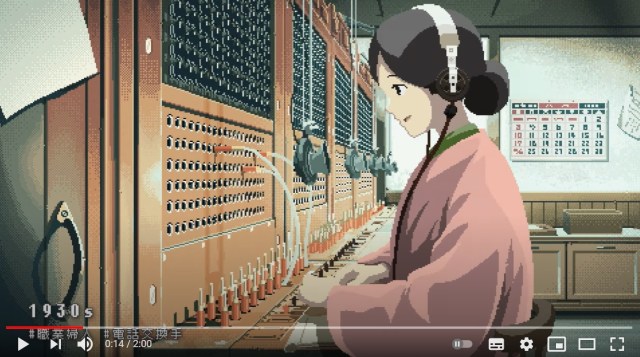
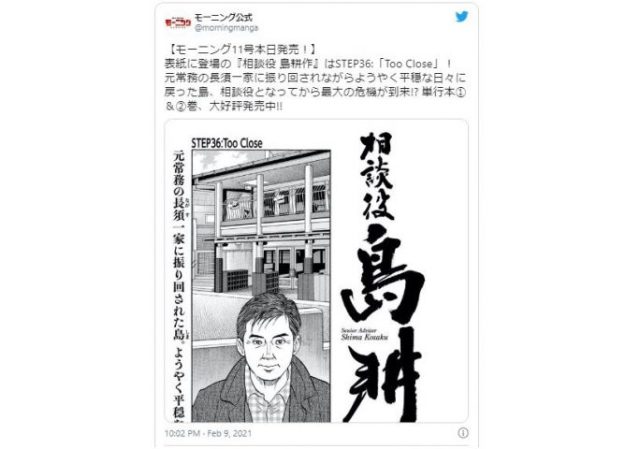

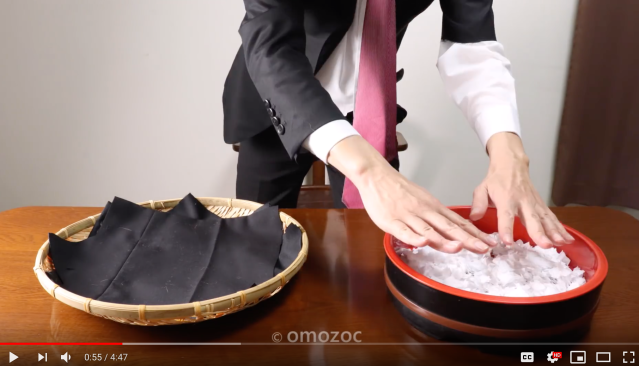
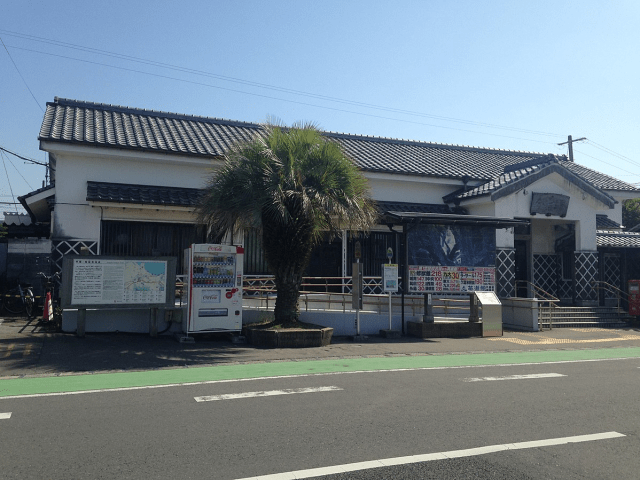
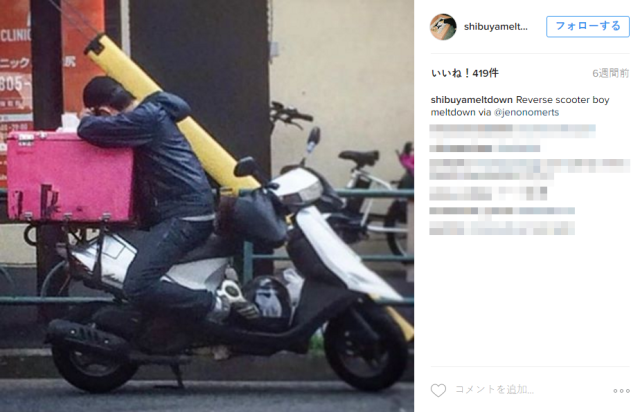


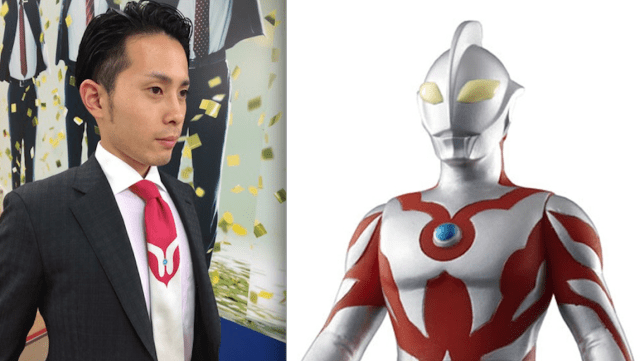
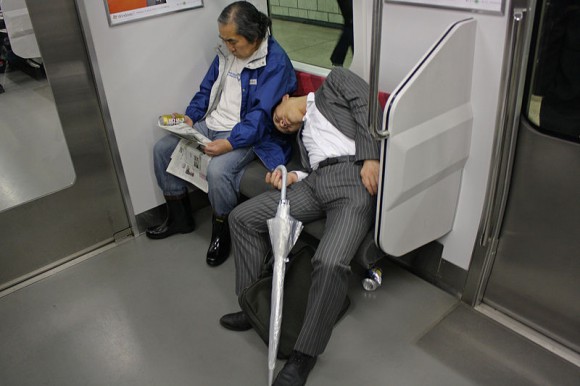


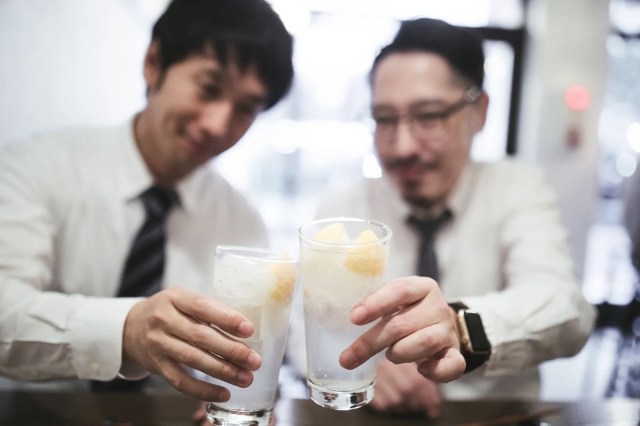
 Tokyo street sweets: The must-snack treats of Nakano’s Refutei
Tokyo street sweets: The must-snack treats of Nakano’s Refutei Starbucks Japan releases first-ever Hinamatsuri Girls’ Day Frappuccino
Starbucks Japan releases first-ever Hinamatsuri Girls’ Day Frappuccino Which convenience store onigiri rice balls are the most popular? Survey reveals surprising results
Which convenience store onigiri rice balls are the most popular? Survey reveals surprising results Japanese restaurant chain serves Dragon Ball donuts and Senzu Beans this spring
Japanese restaurant chain serves Dragon Ball donuts and Senzu Beans this spring Japan Extreme Budget Travel! A trip from Tokyo to Izumo for just 30,000 yen [Part 2]
Japan Extreme Budget Travel! A trip from Tokyo to Izumo for just 30,000 yen [Part 2] How to tell Japanese’s two most confusing, nearly identical characters apart from each other
How to tell Japanese’s two most confusing, nearly identical characters apart from each other Japanese zoo’s monkey bonds with Ikea stuffed orangutang following abandonment by mother[Video]
Japanese zoo’s monkey bonds with Ikea stuffed orangutang following abandonment by mother[Video] Miss World Japan: The great-times-20-granddaughter of samurai lord One-Eyed Dragon
Miss World Japan: The great-times-20-granddaughter of samurai lord One-Eyed Dragon Is Sapporio’s Snow Festival awesome enough to be worth visiting even if you hate the snow? [Pics]
Is Sapporio’s Snow Festival awesome enough to be worth visiting even if you hate the snow? [Pics] Naruto and Converse team up for new line of shinobi sneakers[Photos]
Naruto and Converse team up for new line of shinobi sneakers[Photos] The 10 most annoying things foreign tourists do on Japanese trains, according to locals
The 10 most annoying things foreign tourists do on Japanese trains, according to locals Highest Starbucks in Japan set to open this spring in the Tokyo sky
Highest Starbucks in Japan set to open this spring in the Tokyo sky Tokyo Skytree turns pink for the cherry blossom season
Tokyo Skytree turns pink for the cherry blossom season Starbucks Japan releases new sakura goods and drinkware for cherry blossom season 2026
Starbucks Japan releases new sakura goods and drinkware for cherry blossom season 2026 Japan’s new “Cunte” contact lenses aren’t pronounced like you’re probably thinking they are
Japan’s new “Cunte” contact lenses aren’t pronounced like you’re probably thinking they are Shibuya Station’s Hachiko Gate and Yamanote Line stairway locations change next month
Shibuya Station’s Hachiko Gate and Yamanote Line stairway locations change next month Yakuzen ramen restaurant in Tokyo is very different to a yakuza ramen restaurant
Yakuzen ramen restaurant in Tokyo is very different to a yakuza ramen restaurant Starbucks Japan adds new sakura Frappuccino and cherry blossom drinks to the menu
Starbucks Japan adds new sakura Frappuccino and cherry blossom drinks to the menu Japan just had its first same-month foreign tourist decrease in four years
Japan just had its first same-month foreign tourist decrease in four years Burning through cash just to throw things away tops list of headaches when moving house in Japan
Burning through cash just to throw things away tops list of headaches when moving house in Japan Japan’s newest Shinkansen has no seats…or passengers [Video]
Japan’s newest Shinkansen has no seats…or passengers [Video] Foreigners accounting for over 80 percent of off-course skiers needing rescue in Japan’s Hokkaido
Foreigners accounting for over 80 percent of off-course skiers needing rescue in Japan’s Hokkaido Super-salty pizza sends six kids to the hospital in Japan, linguistics blamed
Super-salty pizza sends six kids to the hospital in Japan, linguistics blamed Starbucks Japan unveils new sakura Frappuccino for cherry blossom season 2026
Starbucks Japan unveils new sakura Frappuccino for cherry blossom season 2026 Foreign tourists in Japan will get free Shinkansen tickets to promote regional tourism
Foreign tourists in Japan will get free Shinkansen tickets to promote regional tourism Take a trip to Japan’s Dododo Land, the most irritating place on Earth
Take a trip to Japan’s Dododo Land, the most irritating place on Earth Is China’s don’t-go-to-Japan warning affecting the lines at a popular Tokyo gyukatsu restaurant?
Is China’s don’t-go-to-Japan warning affecting the lines at a popular Tokyo gyukatsu restaurant? Survey asks foreign tourists what bothered them in Japan, more than half gave same answer
Survey asks foreign tourists what bothered them in Japan, more than half gave same answer Japan’s human washing machines will go on sale to general public, demos to be held in Tokyo
Japan’s human washing machines will go on sale to general public, demos to be held in Tokyo Starbucks Japan releases new drinkware and goods for Valentine’s Day
Starbucks Japan releases new drinkware and goods for Valentine’s Day We deeply regret going into this tunnel on our walk in the mountains of Japan
We deeply regret going into this tunnel on our walk in the mountains of Japan Studio Ghibli releases Kodama forest spirits from Princess Mononoke to light up your home
Studio Ghibli releases Kodama forest spirits from Princess Mononoke to light up your home Major Japanese hotel chain says reservations via overseas booking sites may not be valid
Major Japanese hotel chain says reservations via overseas booking sites may not be valid Put sesame oil in your coffee? Japanese maker says it’s the best way to start your day【Taste test】
Put sesame oil in your coffee? Japanese maker says it’s the best way to start your day【Taste test】 No more using real katana for tourism activities, Japan’s National Police Agency says
No more using real katana for tourism activities, Japan’s National Police Agency says How to tell Japanese’s two most confusing, nearly identical characters apart from each other
How to tell Japanese’s two most confusing, nearly identical characters apart from each other Japanese zoo’s monkey bonds with Ikea stuffed orangutang following abandonment by mother[Video]
Japanese zoo’s monkey bonds with Ikea stuffed orangutang following abandonment by mother[Video] Miss World Japan: The great-times-20-granddaughter of samurai lord One-Eyed Dragon
Miss World Japan: The great-times-20-granddaughter of samurai lord One-Eyed Dragon Is Sapporio’s Snow Festival awesome enough to be worth visiting even if you hate the snow? [Pics]
Is Sapporio’s Snow Festival awesome enough to be worth visiting even if you hate the snow? [Pics] Naruto and Converse team up for new line of shinobi sneakers[Photos]
Naruto and Converse team up for new line of shinobi sneakers[Photos] Is a weekend trip to Korea possible with just 50,000 yen (US$350)? – Part 1【Extreme budget travel】
Is a weekend trip to Korea possible with just 50,000 yen (US$350)? – Part 1【Extreme budget travel】 Japan has a new bar just for people thinking about quitting their jobs, and the drinks are free
Japan has a new bar just for people thinking about quitting their jobs, and the drinks are free Five things that keep Japanese people chained to their jobs
Five things that keep Japanese people chained to their jobs Japanese drugstore sells onigiri at pre-stupid era prices, but how do they compare to 7-Eleven?
Japanese drugstore sells onigiri at pre-stupid era prices, but how do they compare to 7-Eleven? Step into Japanese culture with Converse’s new Japan-exclusive shoes featuring gods, sushi style
Step into Japanese culture with Converse’s new Japan-exclusive shoes featuring gods, sushi style “Bumping men” are a uniquely Japanese class of criminals that are hard to deal with
“Bumping men” are a uniquely Japanese class of criminals that are hard to deal with